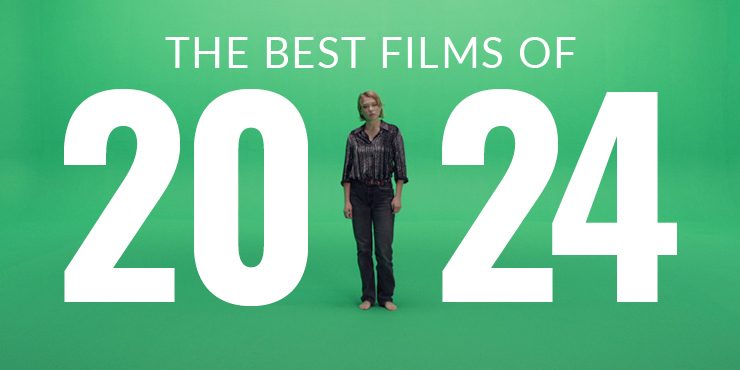The movies of 2024 were still affected by the detritus of last year’s strikes among SAG and the WGA. As such, indie distributors such as Neon and A24 were able to further cement their reputations not only for awards caché, but also for original, daring content – and surprise box office hits added commercial success to the already-established prestige. The overall box office was still dominated by the studios, particularly Disney who rode two sequels – Inside Out 2 and Moana 2 – to billions of dollars, even though there’s close to no cultural footprint to either of those movies; their success fueled mostly by the popular IP and the need to have something for children to see at the theater. Meanwhile, Universal legitimized one of the most aggressive marketing blitzes in Hollywood history by making Wicked the year’s most popular movie, if you add the critical and societal impact to the total dollars. Still, most of the year’s best films originated outside of Hollywood. Not anything particularly new, but especially highlighted this time around. A good mix of veteran masters – Sean Baker, Mike Leigh, Agnieszka Holland – and younger, less familiar directors – Payal Kapadia, Lila Avilés, Adam Schimberg, RaMell Ross – painted a diverse, varied portrait of styles and mediums. Every year is a good year for movies if your curiosity expands past what major studios are offering, and 2024’s best highlights creative worth as well as technical innovation. Here’s my list:
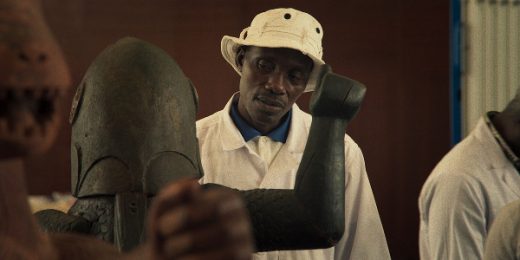
20. Dahomey
The rich inner life of the African continent is so often ignored over stories of settlement, theft, enslavement. Mati Diop’s documentary, Dahomey, is about a community that must decide how their history will be defined. When several African statues are returned from France after over a century, a debate is sparked. Is the return of the art a step toward emotional and political reconstruction? Or is the damage done? In a flourish of artful interrogation, she also gets the perspective of the artwork itself (represented by a cryptic voice-over narration from Makenzy Orcel), and how they comprehend their own form of slavery. There’s no easy answers here, and Diop isn’t looking for them, but Dahomey examines the spiritual and intellectual flotsam that comes with confronting your own colonization.
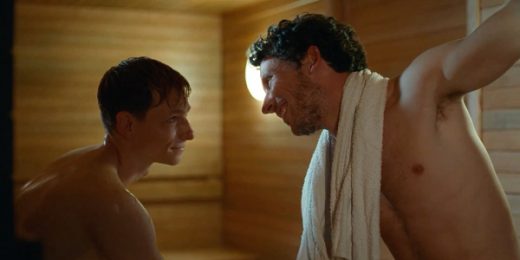
19. Challengers
Luca Guadagnino made two good movies this year, but my preferred one is Challengers, which is about a horny love triangle, filtered through the lens of a sports movie. Megastar Zendaya plays a tennis phenom whose stardom is cut short by a college injury. She’s courted by two other players: one is an emotionally sensitive tactician played by Mike Faist, the other is a troublemaking maverick played by Josh O’Connor. Because this is a Guadagnino movie, the director has some winking fun building as much sexual tension between Faist and O’Conor, as he does between them and Zendaya. It’s the kind of funny, sloppy eroticism that Saltburn dreamed it could be a year ago. The movie is a triumph of style over content, in which the camera goes everywhere: under the court, through a trash storm, a hilariously ostentatious tennis ball POV. Includes an all-timer score from Trent Reznor and Atticus Ross.

18. The Wild Robot
In a year where independent film reigned supreme, The Wild Robot stands tall as the best Hollywood blockbuster of the year. Based on the beloved best-selling novel by Peter Brown, this Dreamworks animated film follows a service robot (voiced wonderfully by Lupita Nyong’o) as she crash lands on an island and finds herself unwittingly in charge of a gosling. Director Chris Sanders produces this on an epic scale, crafting astonishing set pieces and breathtaking visual effects. A swelling, powerful Kris Bowers score helps transform this charming children’s film into a stunning statement on found family and what we owe to one another. Catherine O’Hara, Matt Berry, Stephanie Hsu, Ving Rhames, and Mark Hamill highlight the stacked voice cast.
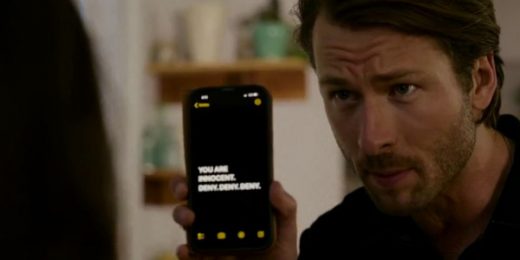
17. Hit Man
One wouldn’t think that a single movie could be a serviceable neo-noir while also being the most successful rom-com of the year. Hitman takes the fundamentals of screwball and runs it through the beats of noir. The script is by director Richard Linklater and star Glen Powell, and together they give us a movie with real romantic chemistry and palpable sexual dynamism. Powell is a professor who moonlights as an undercover cop, specializing in sting operations where he impersonates hit men. Adria Arjona plays the femme fatale who tries to hire him. She eventually involves Powell in a sexy, hilarious scheme to get her out of her tumultuous marriage. This is Powell’s undeniable star-making performance, the one that not only proves that he can lead a movie, but that he can take a high concept plot and turn it into one of the best comedies of the year.
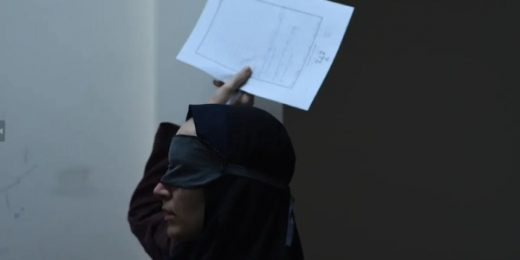
16. The Seed of the Sacred Fig
Director Mohammad Rasoulof is no longer welcome in his home country of Iran. That’s because his film, The Seed of the Sacred Fig, brings into focus the social and political turbulence of that nation. In focusing on a single family – two rebellious daughters facing off against two traditionalist parents – Rasoulof gets to examine precisely the minute effects that an oppressive regime can have, even on a middle class home. Rasoulof’s script brilliantly weaves a tapestry on corruption and paranoia, as a father gets the job he’s always wanted, only to find it puts him at odds with those that matter most to him. By splicing in actual footage of police brutality from the 2022 Tehran protests, Sacred Fig does more than just present current events. It speaks with moral clarity on the consequences that political impotency can have on a single family – and also the entire world.
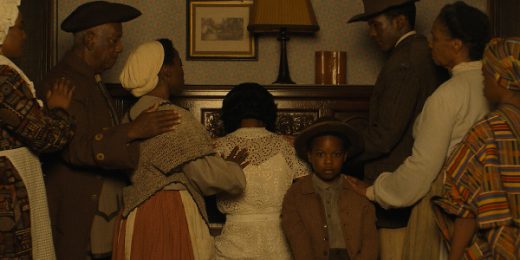
15. The Piano Lesson
The cinematic universe of August Wilson, produced largely by Denzel Washington, grew to three this fall with The Piano Lesson. Co-produced by Denzel’s daughter, Katia Washington, directed by his son, Malcolm Washington, and starring his other son, John David Washington, The Piano Lesson is a family affair. John David Washington joins a remarkable ensemble including Samuel L. Jackson, Corey Hawkins, Skylar Aleece Smith, Ray Fisher, Michael Potts, and a phenomenal Danielle Deadwyler. They play a family haunted by ghosts, each taking a different tact toward exorcism. It all centers around the family piano which is both a symbol of the characters’ defiant persistence as well as generations of trauma. Malcolm Washington spends most of the film detailing the piano’s significance before introducing a finale that brings the film’s metaphysical themes into vibrant, satisfying use.
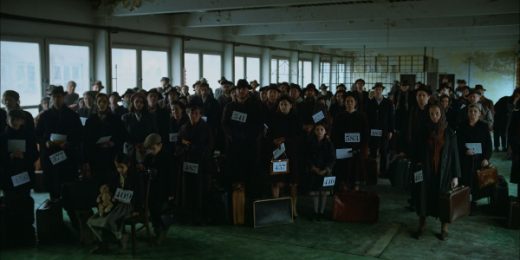
14. The Brutalist
Brady Corbet’s American epic is a precise piece of filmmaking with a wily, undisciplined narrative. Corbet uses this to his advantage in telling the story of a Holocaust survivor and accomplished architect (Adrien Brody) who emigrates from Hungary and meets an American man of industry (Guy Pearce) that chooses to take advantage of his skills. A new life is built in this Land of the Free, but the cost is vast. The Brutalist is the most creatively crafted film of the year, every cinematic decision a showcase of skill and a testament to the film’s audacity. The movie intends to be a generational masterpiece, and for many, that meant a giant target was placed on its back. But the very aspiration gives it an edge. The movie meets its ambition in its captivating performances, its wondrous cinematography, and its phenomenal score. Its imperfections only highlights its determined objectives.
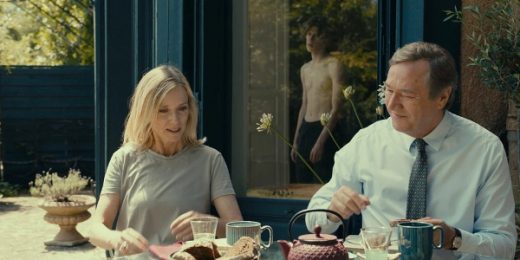
13. Last Summer
Catherine Breillat has been shattering taboos for fifty years. Her novels and films have always been frank depictions of female sexuality that care not for anyone’s definition of romance or decorum. Her latest film, Last Summer, feels mellower than some of her most notorious work, but will still challenge even the most liberal, forgiving audiences. An incredible Léa Drucker plays an attorney who begins having sex with her husband’s troublemaking, teenaged son (Samuel Kircher) from a previous marriage. What at first appears as a pretty standard premise for a tawdry porno becomes a chilling depiction of the collective delusions employed to perpetuate abuse. Breillat is unafraid to touch on the excitement that the affair brings to both of their lives, but Last Summer also takes full measurement of the existential price of their inappropriate behavior. A riveting film that proves Breillat is still a master of coursing compelling drama through controversial subject matter.

12. The Beast
A world without pain is one devoid of life’s greatest pleasures. Such is the central idea inside Bertrand Bonello’s The Beast, which is an operatic tale that stretches over centuries, dealing with past lives and future traumas. Lea Seydoux is a woman trying to exist in an antiseptic future that has erased human emotion as a public good. She also plays a businesswoman in turn-of-the-century France trapped in a loveless marriage, and a meandering actress in 2014 Los Angeles. These three timelines make up the harmful experiences that treatment can rid her of. But what about love? In all three, they’re represented by George Mackay, a kindhearted gentleman in one timeline and a vicious men’s rights YouTuber in another. Seydoux’s performance in this truly Lynchian film is among the year’s best, and Bonello proves that one’s life must not be spent in fear of heartbreak.
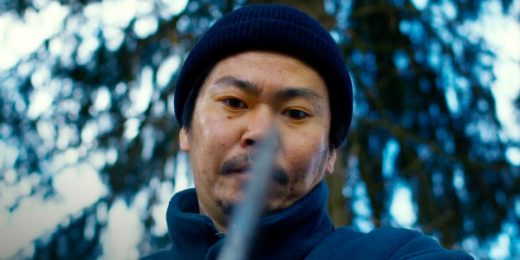
11. Evil Does Not Exist
A small village in the woods lives in basic tranquility, their lives directly interacting with the local landscape that both sustains and enriches their way of life. When this village is intruded upon by a greedy glamping corporation, they respond with understandable alarm. Even as the corporation makes in-roads with the village, their contradictory goals prove insurmountable. Hitoshi Omika plays the community’s odd job man, whose silence underlines a striking intensity. He ends up being the key to the film’s shocking, but ultimately very satisfying ending. Ryusuke Hamaguchi’s follow-up to Drive My Car is significantly shorter in length, but just as robust in theme. Not since Paul Schrader’s First Reformed has a film so fully grasped the existential terror of the climate crisis, while scorning those whose greed only exacerbates the situation. The year’s best score comes from Eiko Ishibashi, who helps keep the tone edgy and off-balance, like a nightmare too beautiful to wake up from.
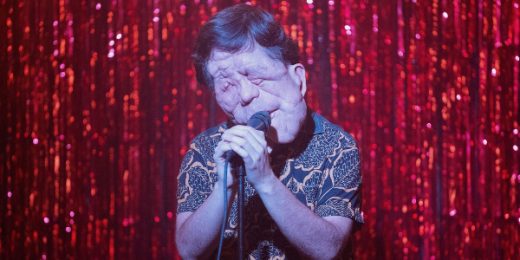
10. A Different Man
In The Apprentice, Sebastian Stan played a man who is resolutely evil on the inside. In A Different Man, he’s someone whose face is deformed due to neurofibromatosis. The affliction makes him meek, but his kind-heartedness shines through for those who wish to see. When a miracle drug cures him, he believes life will get easier. Until he learns there’s a play being made about his former life, directed by his ex-girlfriend (a hysterical Renate Reinsve) and starring another man deformed by the same disease (a note-perfect Adam Pearson). Aaron Schimberg’s film explores how are perceived imperfections give us meaning and how the nature of performance is inherently limiting. It’s elliptical, analytical style will keep you glued but the performances from Stan, Reinsve, and Pearson are what make this one of the best of the year.

9. Green Border
Movies that make you as angry as Green Border usually aren’t my cup of tea. The title refers to the border of Belarus and Poland, a preferred stretch of land for Middle Eastern refugees seeking asylum from their war-torn homelands. The stretch has turned into a geopolitical pissing contest between the two nations, neither of which wish to shepherd these anguished families. For the families themselves, it’s a geographic and emotional purgatory, where they’re subjected to perpetual humiliation and violence. Director Agnieszka Holland spares no punches, directly exposing both municipalities as anti-Muslim racists. A coda which shows how differently refugees from Ukraine were treated just a few years later is a total masterstroke – but blindingly enraging.
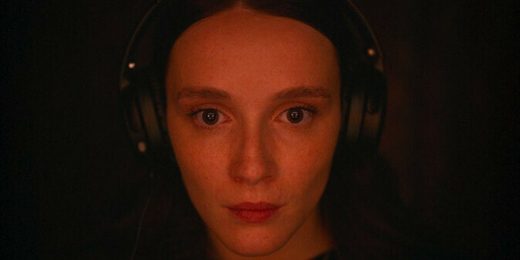
8. Red Rooms
In a year where there’s plenty of competition for “most disturbing”, Pascal Plante’s Red Rooms might be the most upsetting movie of 2024. Juliette Gariépy plays a fashion model whose personal life is consumed by an obsession with the darkest corners of the internet. A horrific murder trial – involving an accused torturer who broadcast his sadistically violent crimes in “red rooms” online – is her latest preoccupation, but Plante takes his time in revealing her motivations. She makes friends with a woman (Laurie Babin) who’s fallen for the suspect and passionately believes his innocence. All the while, the thoughts of our protagonist stay blank. As the details of her life reveal themselves, her behavior becomes unstable, and her endgame comes slowly into terrifying view. Plante’s rigorous direction sets the tone for this haunting movie that documents the self-humanization required to exist in our modern world.
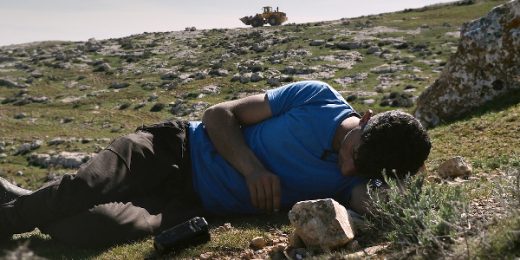
7. No Other Land
The events in this documentary – a collaboration between Israeli and Palestinian documentarians – lead right up to the events of October 7th, 2023. Years are covered where citizens of the West Bank are forcibly removed from their homes by Israeli settlers. The villagers refuse to give in, frequently rebuilding torn down homes, only to be met with greater force. Something must come to a head. Despite what you may think, No Other Land resists wallowing in misery, but instead revels in the personal pride and spiritual perseverance of the Palestinian villagers. The loving but tense relationship between the two filmmakers – Basel Adra is an activist from the West Bank, Yuval Abraham is an Israeli journalist – fuels the film’s narrative arc, which gives a stirring but sobering account of what real communion looks like.

6. Anora
We all have dreams. For Ani (an incredible Mikey Madison), an NYC stripper, her job is to make men’s dreams come true. When she meets an immature rich boy (Mark Eydelshtein), he offers her a different dream: one where they get married, he shares his riches with her, and Ani will never have to perform as a sex worker again. Most of Anora is watching our heroine desperately trying to keep that dream alive, often against her own better judgment. Writer-director Sean Baker covers familiar material here – all of his work revolves in some way around sex work – but Anora is a different scale than he usually works in. His script layers romance, farce, New York chase thriller; it’s all there. It all revolves around Madison, who makes the title character vibrantly alive, taking what could have been a one-note performance and instead delivering a total powerhouse.
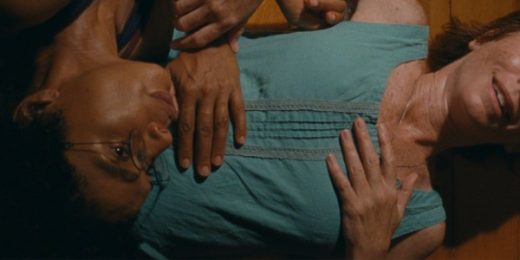
5. Janet Planet
Annie Baker’s reputation precedes her on the stage. One of the most accomplished playwrights of her generation, she chose to take her observational characterization and trademark pregnant pauses to the silver screen. Janet Planet is about a daughter (Zoe Ziegler) trying to reconcile the majesty of her mother, Janet (Julianne Nicholson). Janet is kind, funny, and appears to attract only the most problematic companions. One of them is a temperamental man (Will Patton), another is a self-help guru (Elias Koteas), meanwhile an unemployed friend with a penchant for oversharing (Sophie Okonedo) proves difficult to be rid of. Nicholson’s performance – subtle, funny, all tinged with a hard-to-place melancholy – is a high mark for the year, and Annie Baker proves herself to be as much of a force behind the camera as she was on the stage.
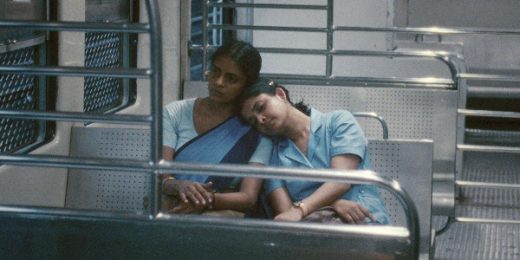
4. All We Imagine As Light
Only with so much affection could director Payal Kapadia give us such a depiction of Mumbai. All We Imagine As Light‘s visions of urban indifference and cultural overflow is equal parts critical and affectionate. The two women at its center (played wonderfully by Kani Kusruti and Divya Prabha) are possessed by desires often shunned by the community they live in. One has a husband living in Europe that still holds her mind captive. The other, younger, one is in love with a Muslim man – already a no-no in her family – and searches desperately for a place and time that they can make love. Kapadia’s interest in these women alone makes this film unique, but the curiosity and sensitivity with which she tells their story is what sets the film apart. A third act in a coastal village glides effortlessly into a light, dreamlike fable, and the true meaning of Kapadia’s brilliant screenplay is unlocked.
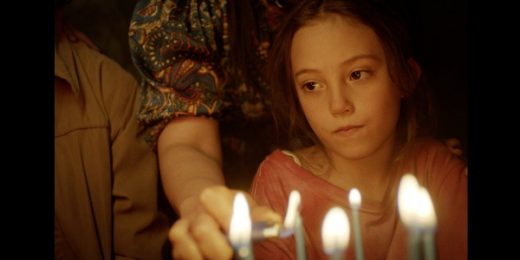
3. Tótem
This little-seen film out of Mexico is one of the most emotionally-shattering movie experiences that I’ve ever had. A young girl (Naíma Sentíes) wanders aimlessly around a house as her family frantically plans a birthday party for her father (Mateo García Elizondo), who is also terminally ill. She must learn the rules of grief and the process of letting go through the reactions of her mother, her aunts, her grandfather, who all express their pain in a wide variety of ways. Writer-director Lila Avilés recalls the best work of Lucrecia Martel. Less a surrealism of image, as a surrealism of the soul. But Avilés isn’t using these tactics to obfuscate like so many other surrealists, but instead makes actual so many feelings and emotions too powerful to explain with words. When we get to the film’s conclusion, Avilés dares you to feel the full weight of our protagonist’s painful discoveries, and it hits you like a ton of bricks.
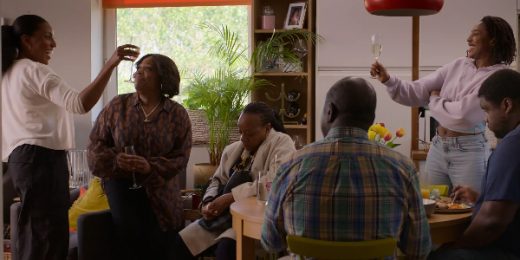
2. Hard Truths
After nearly thirty years, we get a reunion between legendary filmmaker Mike Leigh and the veteran actress Marianne Jean-Baptiste. In many ways, Hard Truths is a tried-and-true Leigh film: a hard-nosed look at working class characters in or around urban England. It’s the performance from Jean-Baptiste that separates it within Leigh’s stellar filmography. She plays Pansy, a perpetually angry woman who spits nothing but poisonous invective at anyone or anything she interacts with. It’s the performance of the year, and it’s not very close. Michelle Austin is her sister, the one person who can fully tolerate her, and the only person left who makes an effort to take down Pansy’s volatile defenses. The uncomfortable reality (or “hard truth”, as it were) at the center of Leigh’s film is simple: the people hardest to sympathize with – and, consequently, the easiest to dismiss – are the people most in need of our help.
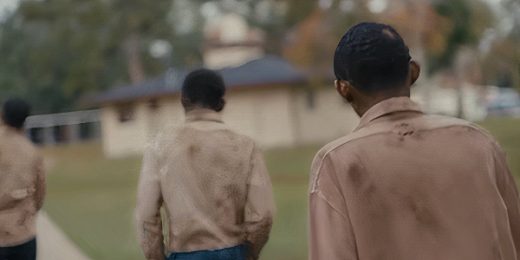
1. Nickel Boys
Like watching a rebirth of what is possible in cinema. If you watched RaMell Ross’s documentary, Hale County This Morning, This Evening, you already knew this was a director of incredible talent. It’s genuinely insane to watch Ross cash in that promise so quickly and so brilliantly. Even more insane that a studio as commercially-minded as Amazon MGM would produce it and release it. The film is an adaptation of Colson Whitehead’s great novel. The book and the film are radically different stylistically, and speak to the variety of ways a powerful story can be told. Whitehead’s book is based on the real reformatory schools of the Jim Crow South, where Black boys were murdered, assaulted, traumatized. In adaptation, Ross and cinematographer Jomo Fray put us directly into the point-of-view of our main characters, we watch them internalize the pain but we also see them recapture their spirit with the last stitch of humanity they have left. I’ve truly never seen anything like it, and the impact of Nickel Boys feels like it will sustain itself for years, if not generations.
Honorable Mention: 92-year-old Clint Eastwood gave us Juror #2, a surprising confrontation of America’s corrupt protection of the White family unit; India Donaldson’s feature debut, Good One, is a meditative look at a young girl’s awakening to the harshness of the world around her; Between The Temples was a delightful piece of neurotic absurdist comedy; the bickering cardinals of Conclave are the center of a surprisingly meme-able hit; Universal Language is an adroit comedy that beautifully melds Wes Anderson and Abbas Kiarostami; Jude Law’s brilliant performance in The Order centers this chilling tale about the real face of American terrorism; Fernanda Torres’s performance in I’m Still Here ranks near the top of the year’s best, and Walter Salles’s film is a sturdy, powerful portrait of grace in the face of authoritarianism; Pedro Almodóvar works for the first time in English in The Room Next Door and guides two incredible performances from Julianne Moore and Tilda Swinton; Colman Domingo leads an ensemble of real-life prisoners in Sing Sing, which mixes documentary with narrative and gives us a penetrating drama about the nature of performance; June Squibb leads a stellar comedic ensemble in Thelma, one of the most surprisingly delightful films I’ve seen in a long time; and lastly, Ryuichi Sakamoto | Opus is an intimate greatest-hits concert from one of the greatest composers of his generation that doubles as a self-produced funeral procession, a touching treatise on the things we leave behind.










